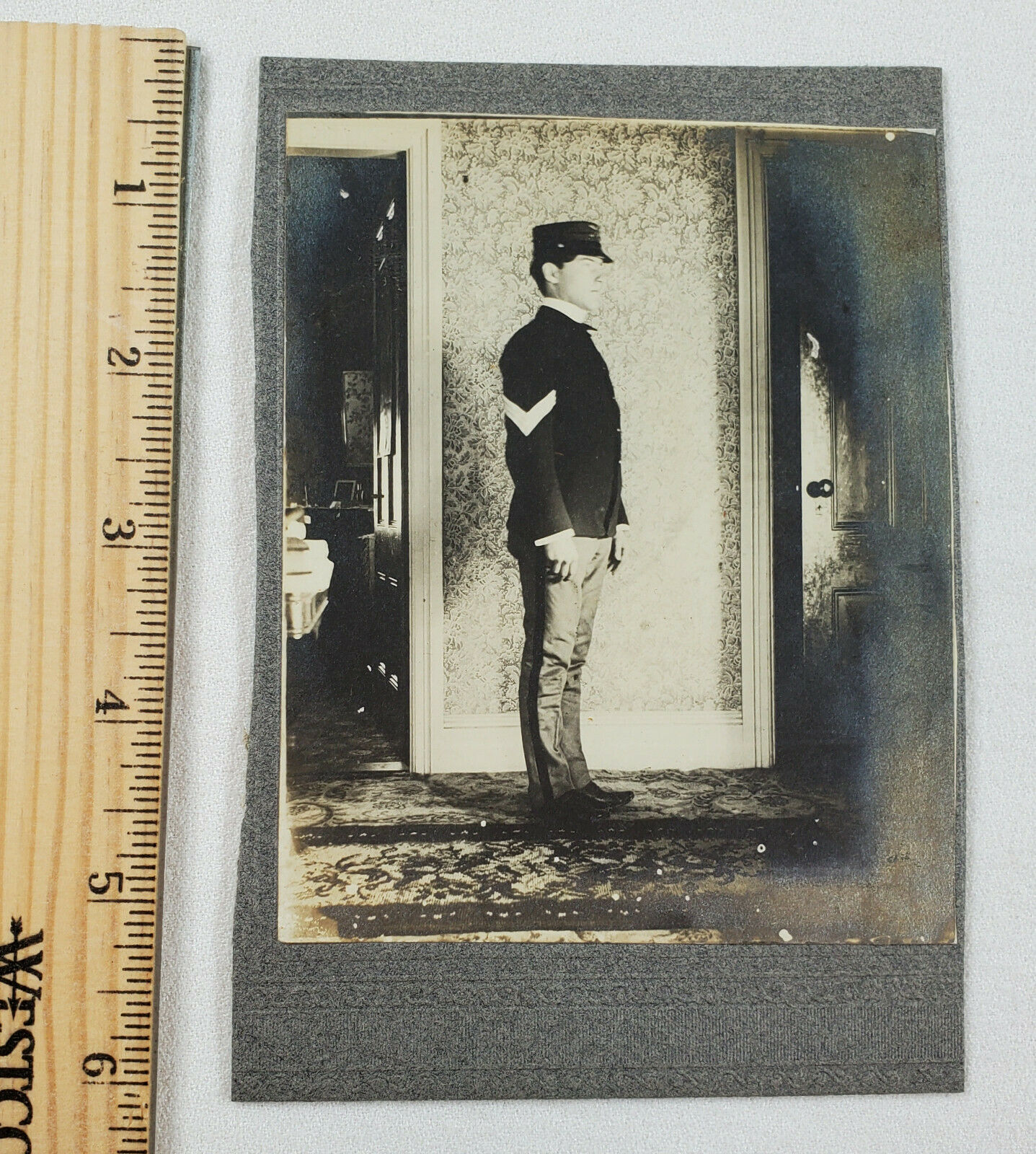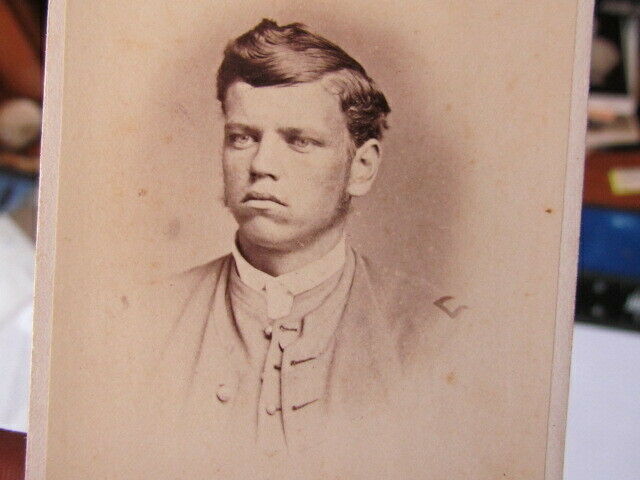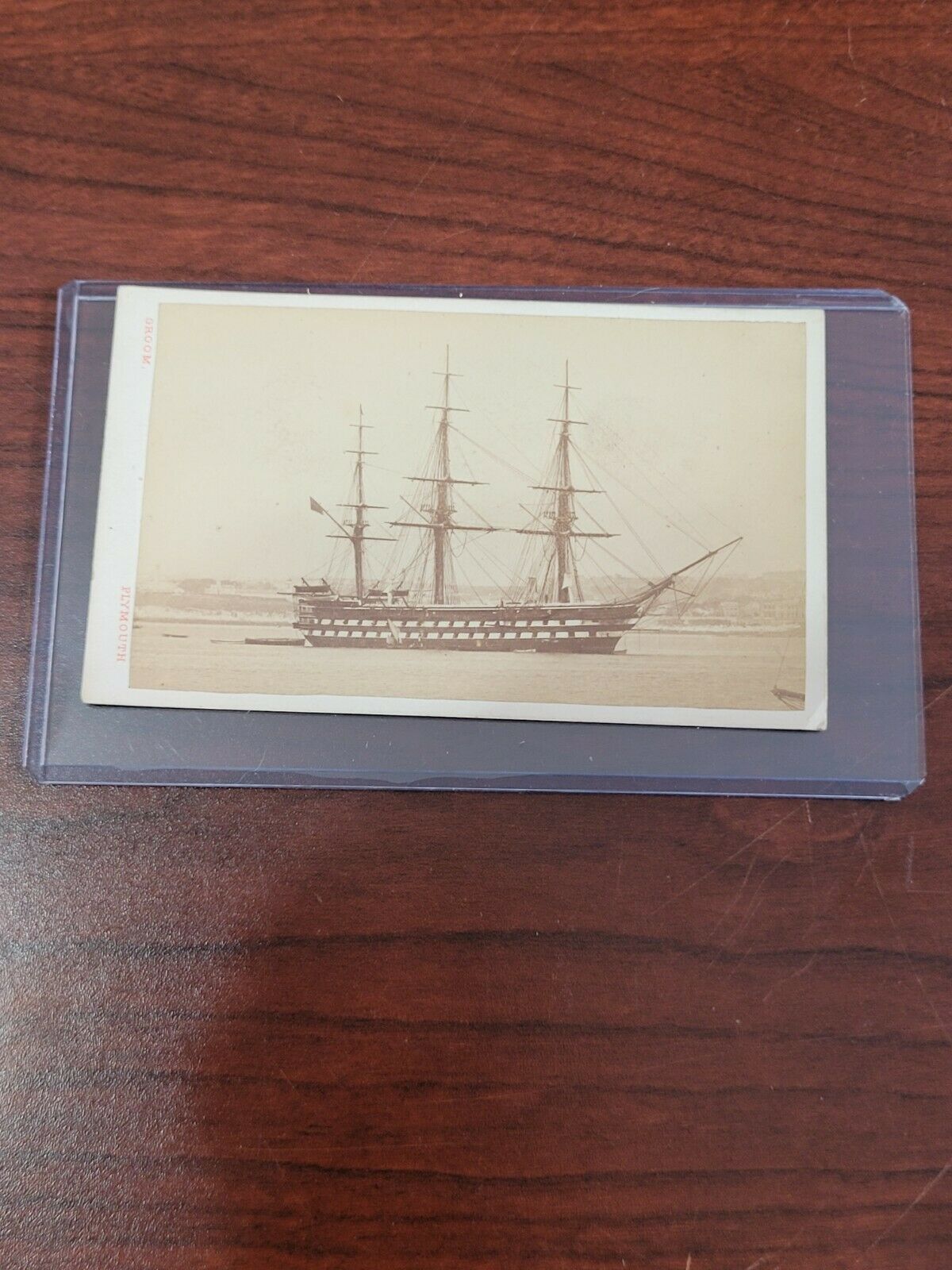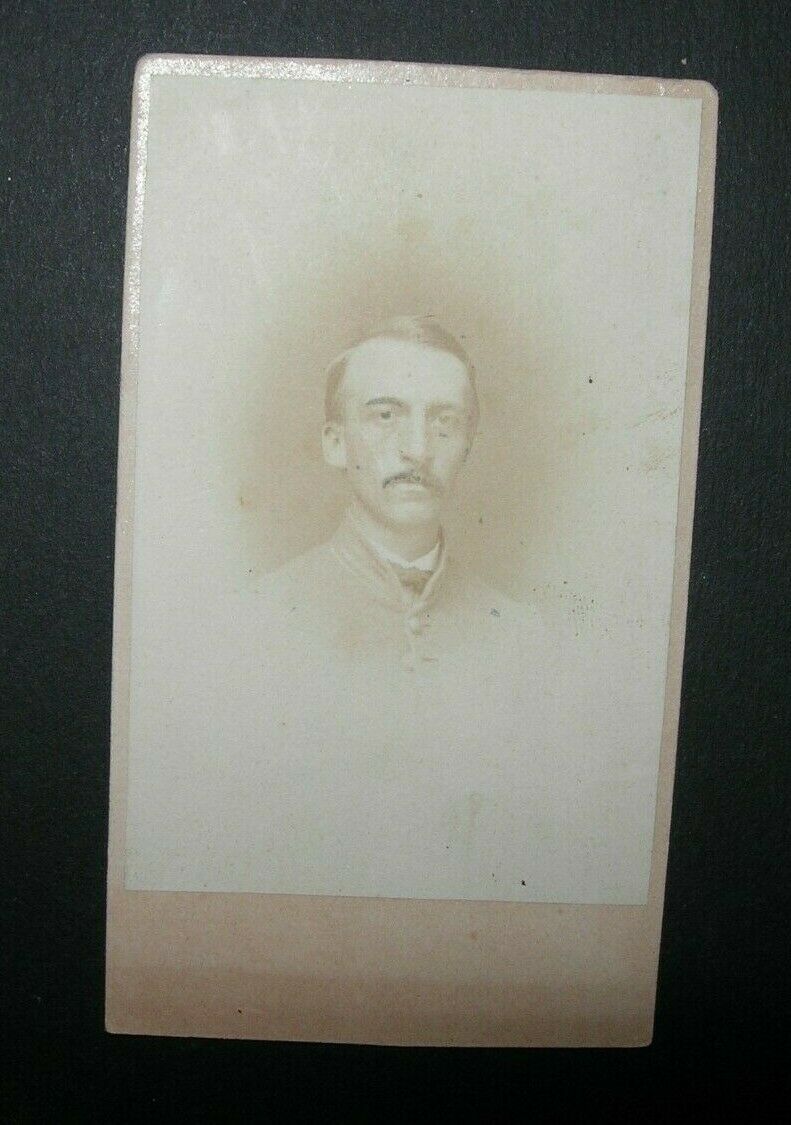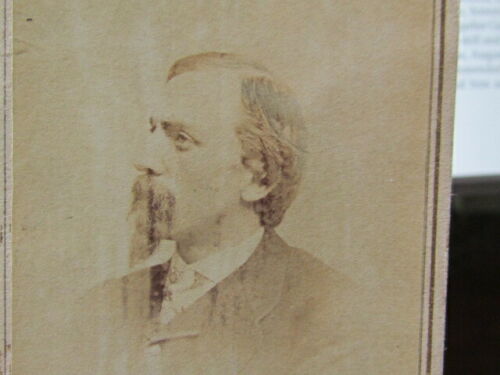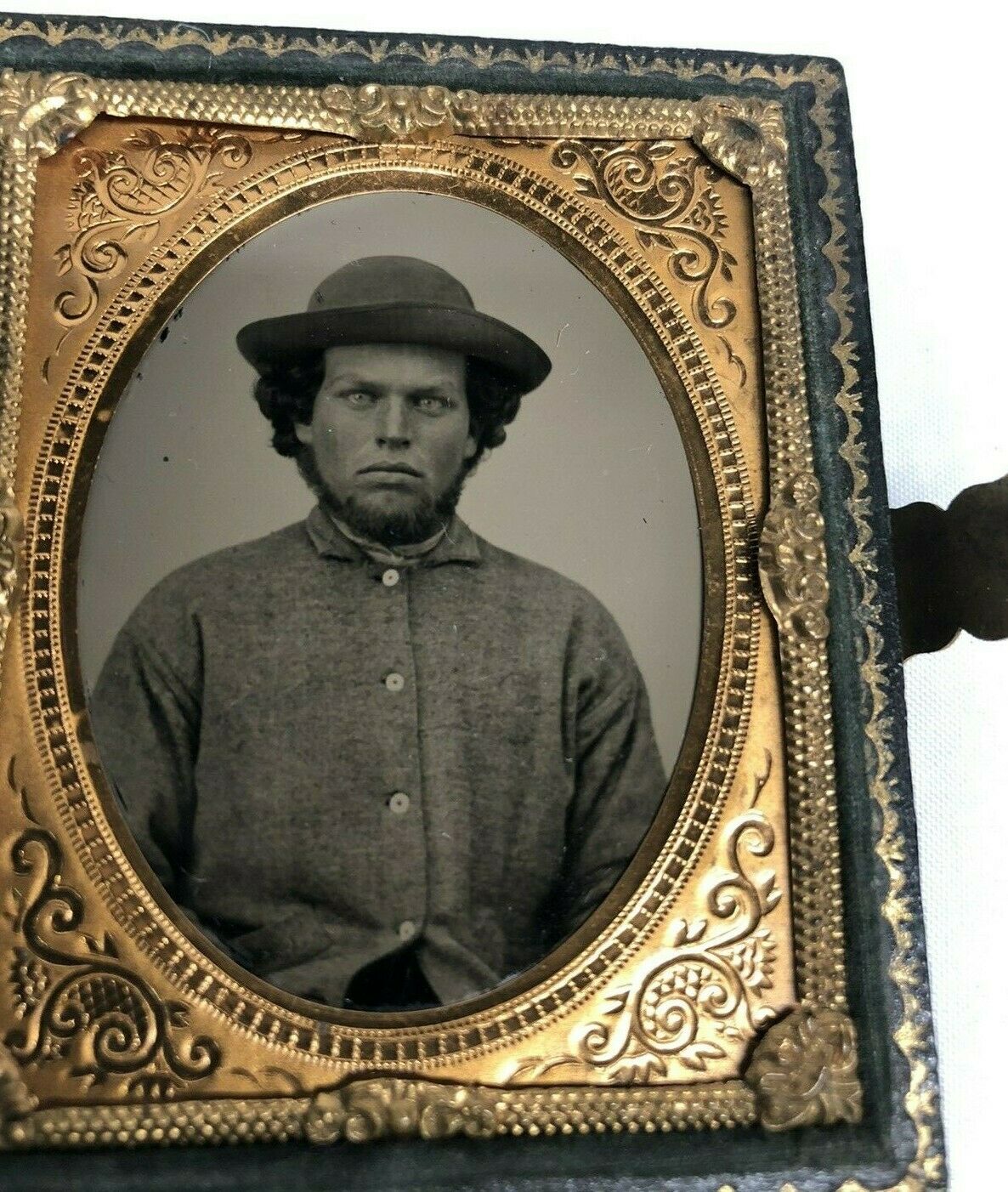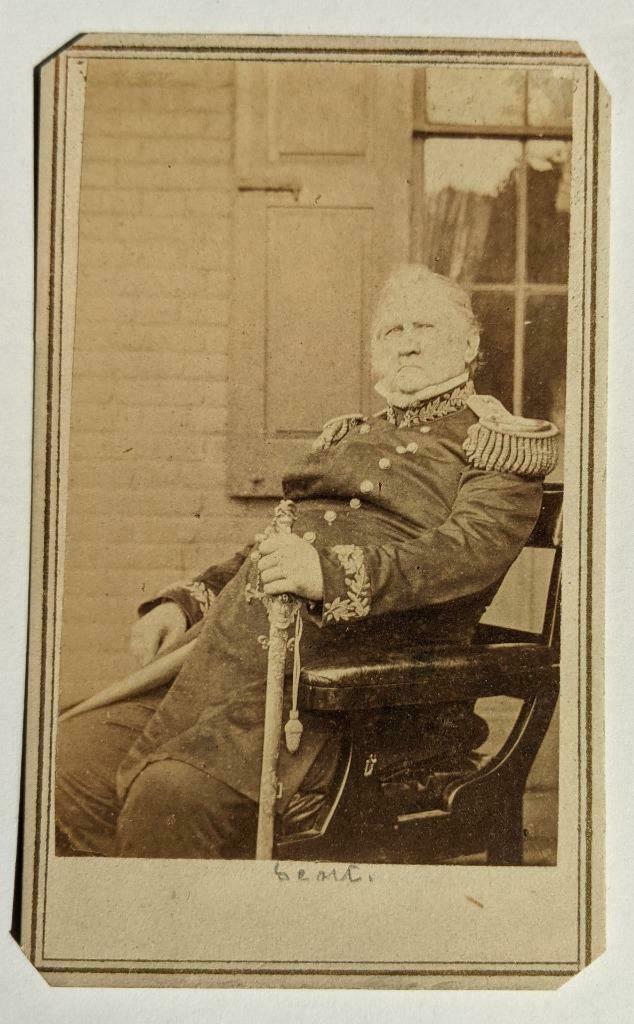-40%
CIVIL WAR CDV: CAPT. WILLIAM JAY II OF NEW YORK -- AIDE TO GEN. GEORGE MEADE
$ 118.53
- Description
- Size Guide
Description
Rare carte-de-visite of Captain William Jay II of New York, who was aide-de-camp to General George Meade, and who also served an aide to General John Wool, General George Morrell, and General George Sykes (at Gettysburg). Jay was the great-grandson of Founding Father John Jay of New York.The youthful officer, who was commissioned captain at age 21, is photographed in a U.S. army dress uniform, which bears a single row of brass buttons and shoulder epaulets adorned with a captain’s rank.
He wears an officer’s sword belt, sash, and buckle. In one gloved hand he appears to be holding an officer’s dress sword, and in the other, a
bearskin headgear
.
The CDV has a surface scrap on the top right front, but Jay’s image is not affected. The image shows very light wear otherwise, and has a blank reverse marked in pencil with the name “William Jay.”
William Jay II was born in Bedford, New York on February 12, 1841. Nearing graduation from Columbia University School of Law when the Civil War began, he joined the Union army as a 21 year-old volunteer aide to
Major General John Wool
. In August of 1861, President Lincoln commissioned him as what reported to be the first Union aide-de-camp to hold the rank of captain.
After serving as an aide to General Wool, Jay transferred to the staff of
Major General George Morrell
, until Morrell’s commission expired.
In 1863, he was appointed to the headquarters staff of
Major General George Meade
, when Meade commanded the V Corps of the Army of the Potomac.
Meade wrote his wife about Jay joining his staff: “I have had an application from young
Jay
, of New York, to come upon my staff, as an extra aide. He was appointed an additional aide-de-camp at the time the law authorized such appointments, and has been serving with
General
Morrell
. That officer having been deprived of his command,
Captain
Jay
has applied to me. I told him, if the War Department would assign him, I should be glad to have him.”
Jay served as Meade’s aide during the
Battle of Chancellorsville
, and when Meade was promoted to command of the Army of the Potomac prior to Gettysburg, Jay became aide-de-camp to the new U.S. V Corps commander,
General George Sykes
– at Sykes’ request.
Jay was engaged with the V Corps at Gettysburg,
and Sykes commended him in his after-action report as
“
zealous, indefatigable, and ready for any emergency.” A
fter the battle, he remained General Sykes’s staff aide until April of 1864.
At that time, he rejoined General Meade’s headquarters staff during General Ulysses S.
Grant’s Overland Campaign
, and remained in that post through the Army of the Potomac’s successful operations, culminating with the surrender of Lee’s army at
Appomattox
.
Jay appears to have been intensely loyal to General Meade, praising him in private correspondence during the Overland Campaign.
“
The papers seem to give all the credit of the campaign to Grant,” he wrote, “which is an immense mistake. He looks on and puts in his oar occasionally I suppose, but General Meade commands the army… It is not enough that you should give all the credit to Grant, but history will give General Meade an equal if not larger share of the honor of this campaign. If it does not, it ought to.” Meade seems to have valued Jay’s service as aide-de-camp, once so describing him to a fellow officer: “Captain Jay
has joined me, and seems quite a clever gentleman.”
In April of 1864, Jay was
brevetted major by President Lincoln
for “conduct in the field,” and at the end of the war was
brevetted lieutenant colonel by President Andrew Johnson
for “gallant and meritorious services.” Jay completed law school in 1868, and experienced a successful career as a New York attorney and vice president of the
New York Herald
newspaper. In 1878, he married to Lucie Oelrich, who was the daughter of a prominent New York City business leader, and the couple parented three children.
He was active in a variety of professional and social organizations, including serving as president of the Huguenot Society of America.
When he died at age 74, his estate was valued at -million.
In a letter to the U.S. War Department at the conclusion of the Civil War,
General Meade officially praised Jay for “his gallantry and zeal, and the intelligence he has ever displayed since being under my command.”
According to its index, the
War of the Rebellion: The Official Records of the Union and Confederate Armies
mentions Jay at least nine times.
Letter of provenance provided. Free shipping.
Sources:
“The Great-Grandson of John Jay.”
Littell’s Living Age. S
eries 3. Vol. 30. (1865) p.36.
War of the Rebellion: The Official Records of the Union and Confederate Armies:
see index.
Meade, George.
The Life and Letters of George Gordon Meade, Major-General United States Army.
New York: Charles Scribner’s Sons, 1913
.
Vol. 1. pp. 355-6.






